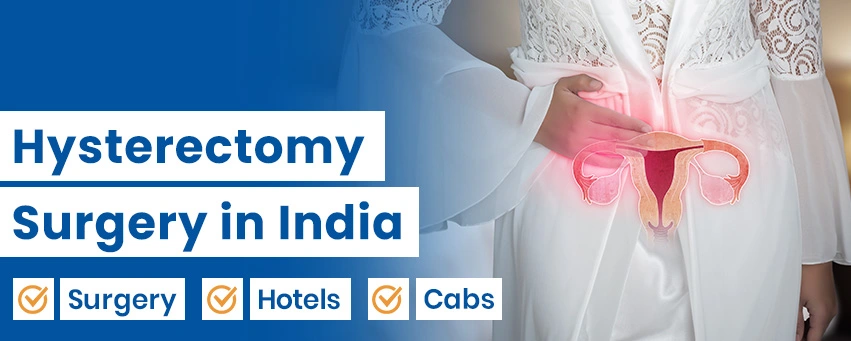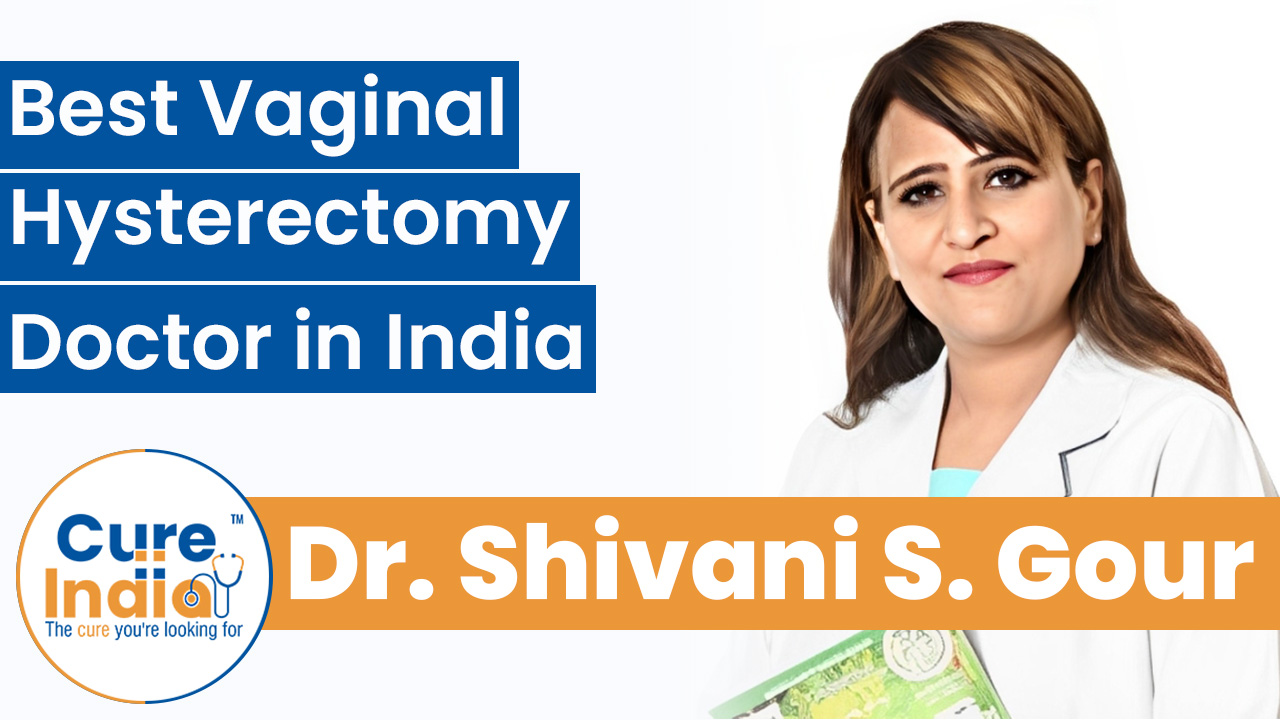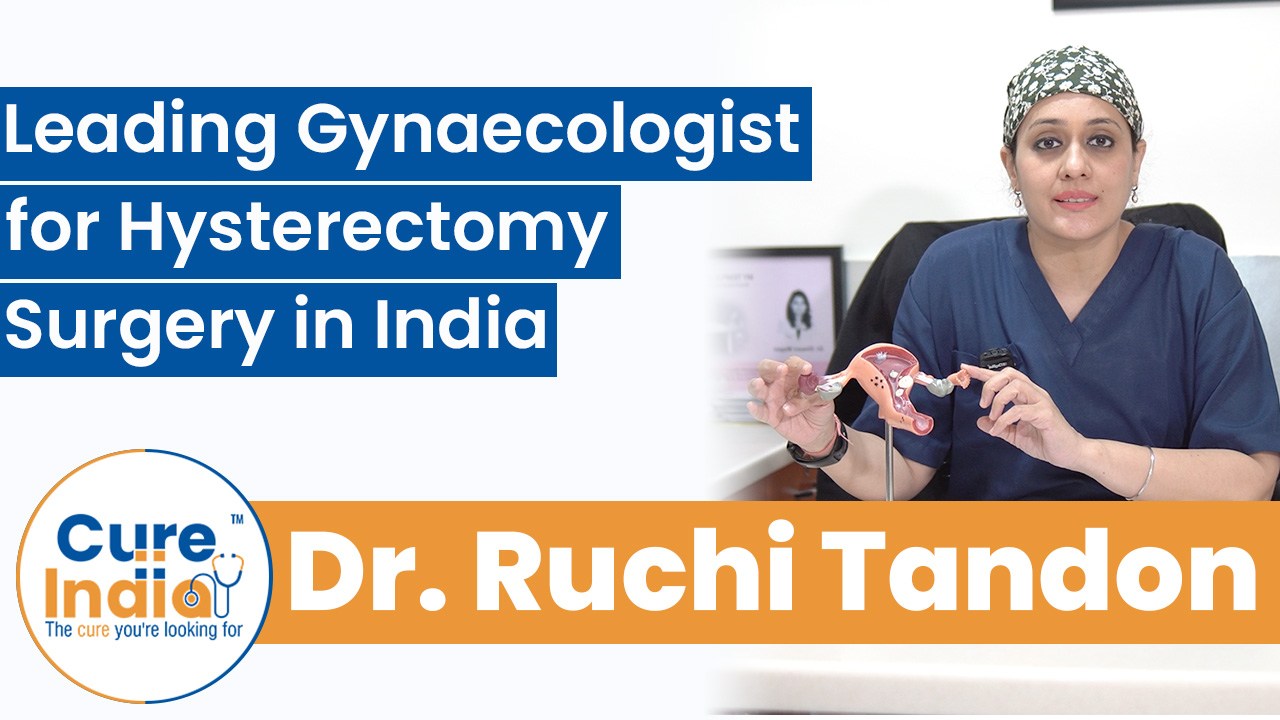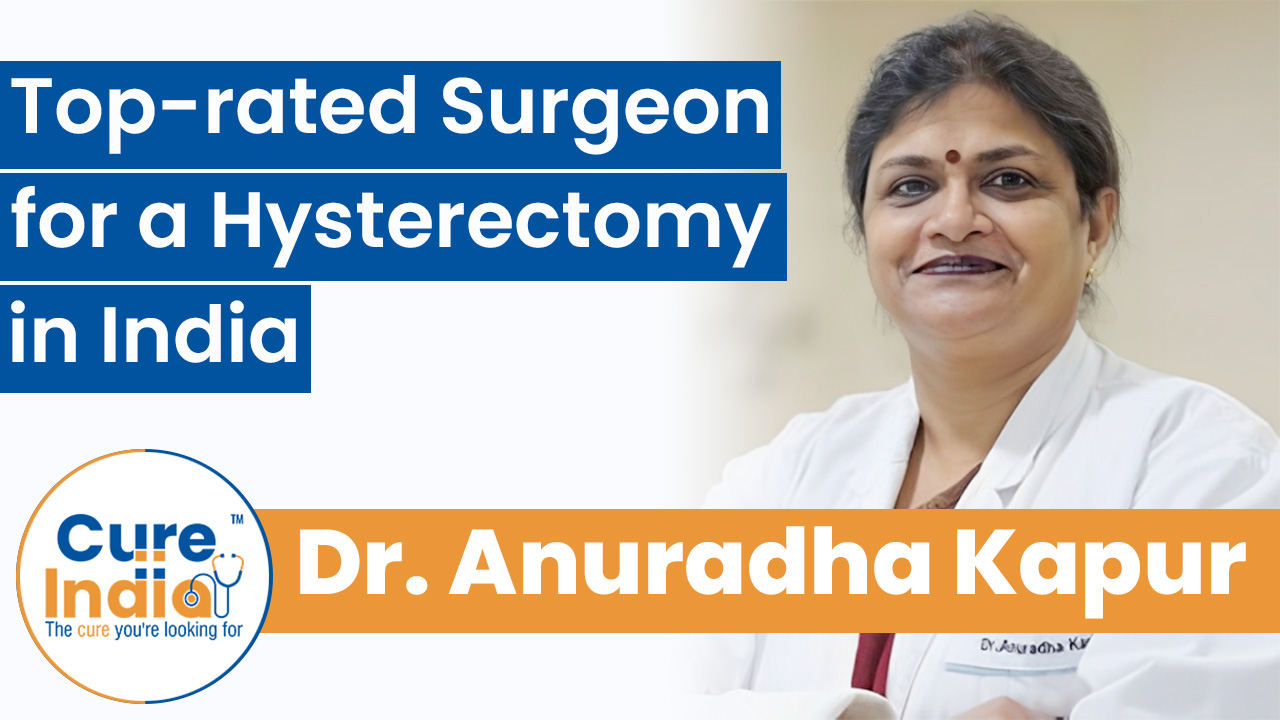

Hysterectomy is a surgical procedure where the uterus is removed from the body. The surgical removal of the uterus may or may not involve removing the surrounding tissues and organs such as the cervix, ovaries, fallopian tubes, surrounding tissues, etc. The uterus is a female reproductive organ that is naturally designed to grow and nurture a fetus. After hysterectomy surgery, you will not get your menstruation cycle, and you will not be able to get pregnant. The reasons to opt for uterus removal surgery are many. A lot of women decide to remove the uterus due to the risk of developing cancer.
Studies show that Sub-Saharan Africa has the highest prevalence of cervical cancer in the world. The main cause of cervical cancer in African countries is the HPV virus (Human Papilloma Virus). Also, ovarian cancer cases rank 5th in Africa with the highest incidence rate. The mortality rate due to ovarian cancer is also high in many African countries. Many women need uterus removal surgery to prevent complications in the body or to reduce the possibility of developing cancer. Due to insufficient diagnostic and therapeutic facilities, many women from African countries like Cameroon, Uganda, Rwanda, and Tanzania decide to travel for hysterectomy surgery in India.
India is the best country for getting total hysterectomy surgery or other related procedures, and it has also become one of the medical hubs. A lot of people from African countries travel to India for many different treatment procedures, not only because of the low cost of treatment but also because they receive excellent medical service in India. Indian hospitals for hysterectomy surgrey have the best-qualified surgeons and offer world-class infrastructure and facilities. The combination of the best treatment service, lowest cost, and most certified and experienced surgeons makes India excellent for international patients to receive the treatment.
Indian surgeons provide the best hysterectomy treatment, and they have expertise in performing different types of hysterectomy procedures. Based upon the patient’s condition, the surgeon either removes only the uterus or along with the uterus, additional parts such as the ovaries, fallopian tubes, cervix, etc. may also be removed. The surgeon may perform one of the following procedures based on the patient’s condition.

Total abdominal hysterectomy is the most common type of hysterectomy surgery in India in which the uterus and cervix are removed but the ovaries and fallopian tubes are kept in their place.
It is also known as supracervical or subtotal hysterectomy. In this procedure, only the upper portion of the uterus is removed, whereas the fallopian tubes, ovaries, and cervix remain in place.
In the radical hysterectomy procedure, the uterus, cervix, upper part of the vagina, and surrounding tissues are removed. In certain conditions, the ovaries, lymph nodes, and fallopian tubes are also removed.
This type of hysterectomy surgery in India is combined with salpingectomy (removal of fallopian tube) and oophorectomy (removal of ovaries). In this procedure, along with the uterus, the fallopian tubes, ovaries, and cervix are also removed.
In this procedure, along with the uterus, the fallopian tubes, ovaries, cervix, the upper part of the vagina, and the surrounding lymph nodes and tissues are also removed.
The uterus removal surgery is a common gynaecological procedure that many women go through. Though it is not always necessary, it becomes essential if women have certain medical conditions. Women with uterine cancer or ovarian cancer decide to have a hysterectomy surgery in India. There are many other reasons to have hysterectomy surgery; they are listed below.
Before a uterus removal surgery, it is important to get a few diagnostic tests. The diagnostic test helps your surgeon understand your symptoms, evaluate your condition, and know your overall health. The proper diagnosis also helps your surgeon decide the type of hysterectomy procedure to perform and to determine how fit the patient is. Following is the list of diagnostic tests that your surgeon runs before the surgery:
■ Assessment of your medical history: It will help your surgeon to know about your medical history and how your body reacts to certain conditions and medicines.
■ Physical exam: A pelvic exam is conducted by the surgeon to check any abnormalities in the structure of the reproductive organs.
■ Laboratory tests: Some tests, like blood and urine tests, are required to check if there is any infection in the body, to check the hormone levels, and to determine the patient’s overall fitness.
■ Imaging tests: To visualise the internal organs like the ovaries, uterus, surrounding tissues, etc. Imaging testing is done. These tests help in finding out any possible irregularities like fibroids or tumours present in the uterus.
■ Biopsy: If a woman is at a high risk of developing cancer, a biopsy test is done to check any presence of cancerous tissue or its precancerous stage.
■ Hysteroscopy and other diagnostic procedures: Your surgeon may recommend some diagnostic tests like hysteroscopy and laparoscopy to diagnose some conditions like polyps, fibroids, endometriosis, etc.

Depending upon your condition, your surgeon will decide what type of hysterectomy procedure is best for you. During the surgery, your heart rate, breathing, and blood pressure are continuously monitored, and an intravenous line will be placed in the vein generally in the arm for medicines and fluids. You will be unconscious under general anaesthesia during the surgery. There are different methods to perform this procedure, which are listed below.

It is also known as vaginal hysterectomy. In this procedure, you will have to lie on your back, similar to the Pap test. Your surgeon will insert a urinary catheter to empty your urinary bladder. After cleaning the surgical area, your surgeon will make an incision at the top of the vagina to reach the uterus. After the incision is made, long medical instruments are used to separate the connective tissues, fallopian tubes, and ovaries from the uterus. Then, the uterus is removed from the vaginal opening. After the uterus removal, the incision is closed with absorbable stitches to control the bleeding in the pelvis.
Abdominal hysterectomy in India is a type of surgical method to remove the uterus by making an incision in the abdomen. It is also known as an open hysterectomy. In this procedure, the surgeon either makes a horizontal incision on the lower belly or a vertical incision that extends beyond the belly button. Once the incision is made, the uterus is disconnected from the connective tissues, fallopian tubes, ovaries, and surrounding tissues and is taken out of the body. After removing the uterus, the abdominal and pelvic cavities are cleaned, and the incision is closed with the stitch.
It is a minimally invasive surgical approach that is done with the use of a laparoscope, which is a thin and flexible tube having a camera and light attached to its anterior part. In this procedure, a few small incisions are made in the abdomen after sanitizing the incision site. Then the surgeon inserts a laparoscope from the one incision to view the organs in the pelvic cavity on a TV monitor. The gas is pumped into the abdomen to create more space to perform the surgery. From the other small incisions, the surgeon inserts the surgical tools and performs the surgery while looking at the video monitor. Once the uterus is removed, the internal cavity is cleaned, and the incision site is closed with absorbable stitches.
The robotic-assisted hysterectomy surgery in India is a new technology that is available in Indian hospitals. It is also a minimally invasive procedure for removing the uterus. In this method, the surgeon uses the robotic arms to perform the surgery. With robotic surgery, only one tiny incision of about 5 to 12 millimetres is required, and the surgery can be completed within 1 to 4 hours.
An expert gynecological surgeon performs hysterectomies. CureIndia helps connect you with the leading doctors for your hysterectomy surgery in India. The surgeons associated with CureIndia are experienced, skilled, and highly proficient in their field. Let us introduce you to the best hysterectomy surgeons in India.





The total cost of uterus removal surgery in India varies in different cities and hospitals. It depends on the hospital of your choice, the city where you get the treatment, your travel and stay cost, medicines cost, insurance coverage, the fees of your surgeon, your age, your overall health, the severity of your condition, type of hysterectomy surgery, diagnosis cost, etc. However, on average, the hysterectomy surgery in India may cost you between $2,500 and $3,500, which is much lower compared to the cost in the USA, where it ranges from around $9,661 to $22,534 and in the UK it ranges from $5,500 to $12,008.
| Treatment | Cost in India | Stay in India |
|---|---|---|
| Total Hysterectomy Surgery in India | $2,500 | 7 Days |
After a hysterectomy surgery in India, you will need to stay at the hospital for about one to five days. After the surgery is completed, your blood pressure, breathing, and heartbeat are monitored for a few hours to make sure there are no complications in the body. After the effect of anaesthesia wears off, you will be told to walk as soon as possible to prevent the formation of blood clots in the legs. In case you have had a vaginal hysterectomy, the vagina will be packed with a transparent, light material made up of cotton known as gauze, which will prevent bleeding. It will be removed after a few days.
Your surgeon will give you some instructions to follow at home when you get discharged from the hospital. You will also be given medicines to control pain and discomfort after the surgery. In most cases, the surgeon uses dissolvable stitches, which dissolve in the body over time, but if the non-dissolvable stitches are used, you will be given a follow-up appointment to remove the stitches. After you reach home, don’t do any strenuous activities for at least 3 to 4 weeks. Avoid lifting heavy objects, bending, pulling or pushing objects, etc. Only light exercises like walking are recommended. With proper care and rest, you will be completely recovered within 6 to 8 weeks.
The uterus removal surgery is performed to remove the uterus and most likely the cervix from the body to treat or prevent certain medical conditions like cancer, endometriosis, fibroids, etc. As the prevalence of cancer in female reproductive organs has increased in Africa, many women from African countries visit India for their uterus removal surgery. The increased trust of African patients in Indian hospitals is due to the highly experienced hysterectomy surgeons in India who are devoted to providing the best medical care. With the high-quality medical service, the cost of hysterectomy surgery in India is very low as compared to many developed countries, which is highly profitable for international patients.
